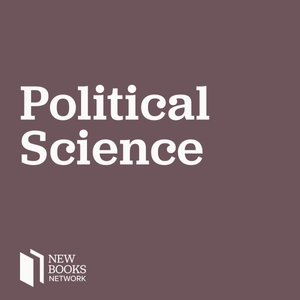
Episode 18: Critical Incidents and Psychologist Safety
12/20/14 • 60 min
If you have missed AM radio, then you will appreciate this episode. John experiments with conference call software with his guests to discuss ethics and safety from a psychologist's point of view. I apologize about the squeaks (Shannon's phone), scratches and other recording imperfections.
John's guests include Dr. Don McAleer, psychologist, gun owner, firearms instructor, firearm collector; Massad Ayoob, an international firearms and self-defense instructor, expert in lethal force encounters and shooting cases, and author; and, Dr. Shannon Clark, psychologist, FBI agent, active shooter and response instructor, and lifelong martial artist.
We discuss the ethics of nonmaleficence (do no harm) versus personal safety. It is no secret that psychologists are vulnerable to threat, assault, and stalking of patients and family members of patients. The overarching goal is to start a discussion for psychologists and mental health professionals about potential dangers for mental health professionals and some options to help keep them safe.
At the end of this podcast, the listener will be able to:
1. Outline your personal values related to safety in your professional life.
2. List the options to enhance personal safety in your office.
3. Describe several responsible steps to take if you decide to carry a firearm or house one in your office.
Reading Material
Ken Pope: Therapists' Resources for Threats, Stalking, or Assaults by Patients
Robert B. Young: When a Psychiatrist Shoots to Kill
Dave Grossman: On Killing: The Psychological Cost of Learning to Kill in War and Society
Massad Ayoob: In the Gravest Extreme: The Role of the Firearm in Personal Protection
Massad Ayoob: Deadly Force: Understanding Your Right to Self Defense
Massad Ayoob Information
Shannon Clark's email address
If you have missed AM radio, then you will appreciate this episode. John experiments with conference call software with his guests to discuss ethics and safety from a psychologist's point of view. I apologize about the squeaks (Shannon's phone), scratches and other recording imperfections.
John's guests include Dr. Don McAleer, psychologist, gun owner, firearms instructor, firearm collector; Massad Ayoob, an international firearms and self-defense instructor, expert in lethal force encounters and shooting cases, and author; and, Dr. Shannon Clark, psychologist, FBI agent, active shooter and response instructor, and lifelong martial artist.
We discuss the ethics of nonmaleficence (do no harm) versus personal safety. It is no secret that psychologists are vulnerable to threat, assault, and stalking of patients and family members of patients. The overarching goal is to start a discussion for psychologists and mental health professionals about potential dangers for mental health professionals and some options to help keep them safe.
At the end of this podcast, the listener will be able to:
1. Outline your personal values related to safety in your professional life.
2. List the options to enhance personal safety in your office.
3. Describe several responsible steps to take if you decide to carry a firearm or house one in your office.
Reading Material
Ken Pope: Therapists' Resources for Threats, Stalking, or Assaults by Patients
Robert B. Young: When a Psychiatrist Shoots to Kill
Dave Grossman: On Killing: The Psychological Cost of Learning to Kill in War and Society
Massad Ayoob: In the Gravest Extreme: The Role of the Firearm in Personal Protection
Massad Ayoob: Deadly Force: Understanding Your Right to Self Defense
Massad Ayoob Information
Shannon Clark's email address
Previous Episode

Episode 17: Existential Angst, Ethics, and Your Professional Will
Are you a psychologist working independently? If so, do you have a professional will? If not, you need to listen to this podcast. John welcomes Drs. Mary O’Leary Wiley and Cathy Spayd to outline the important points in constructing a professional will. A professional will is part of your ethical obligation to your patients should you die suddenly or become incapacitated. The podcast will address the pragmatics of constructing a professional will and why it is important for all psychologists to have a professional will.
At the end of the workshop the participants will be able to:
1. Explain the importance of a professional will.
2. Locate documents on the Internet to help create a professional will.
3. Create your professional will.
Click here to earn one APA-approved CE credit
Resources
Mary O'Leary Wiley, PhD ABPP web site
Closing a Professional Practice: Clinical, Ethical and Practical Considerations for Psychologists Throughout the Lifespan PowerPoint presentation by Drs. Wiley and Spayd
APA Sample of a Professional Will
Ragusea, S. (2002). A professional living will for psychologists and other mental health professionals. In L. VandeCreek & T. Jackson (Eds.), Innovations in clinical practice: A source book (Vol. 20, pp. 301 – 305). Sarasota, FL: Professional Resource Press.
Spayd, C.S. and Wiley, M.O. (2009). Closing a Professional Practice: Clinical and Practical Considerations. Pennsylvania Psychologist, 69 (11), 15-17.
Dashlane.com - A secure site to store passwords
Next Episode

Episode 19: PA Act 31 Training (Part 1) - For All Licensed PA Professionals
In this continuing education program, John and Sam Knapp discuss the critical elements of the new Child Protective Service law. Act 31 of 2014 requires all mandated reporters who hold licenses to receive at least two hours of approved continuing education in the signs of child abuse and the reporting requirements for child abuse in Pennsylvania.
Episode 19 is the first hour of that training. In hour one, Drs. Gavazzi and Knapp discuss the definitions of a child and perpetrator as these pertain to the new mandated reporting law. John and Sam highlight the legal definitions of physical abuse, emotional abuse, and begin to discuss the definition of sexual abuse in the new Pennsylvania law.
Click here to find the PowerPoint presentation associated with this podcast.
Please go to Part 2. Once you listen to parts 1 and 2, a link will be provided for Continuing Education credit.
This podcast is not yet approved by the PA Department of Human Services or the PA Department of State.
My estimate is that it will be approved in early March 2015
If you like this episode you’ll love
Episode Comments
Generate a badge
Get a badge for your website that links back to this episode
<a href="https://goodpods.com/podcasts/ethics-and-psychology-395429/episode-18-critical-incidents-and-psychologist-safety-55726645"> <img src="https://storage.googleapis.com/goodpods-images-bucket/badges/generic-badge-1.svg" alt="listen to episode 18: critical incidents and psychologist safety on goodpods" style="width: 225px" /> </a>
Copy




